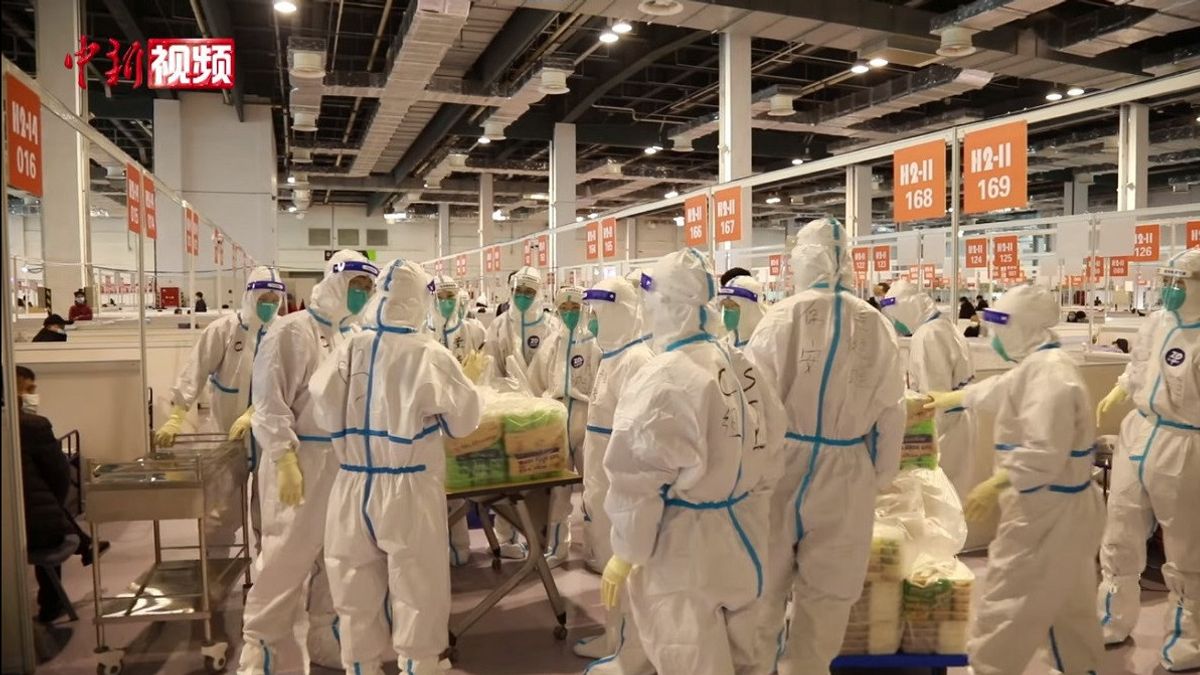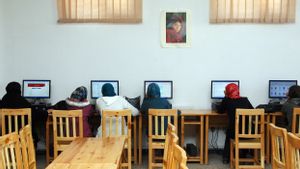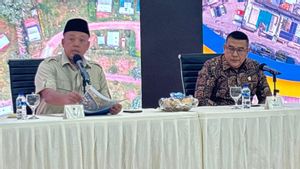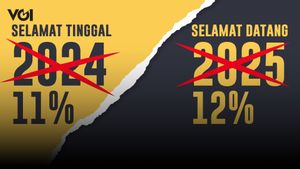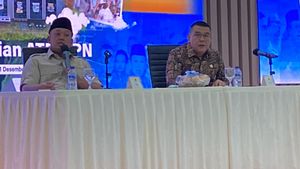JAKARTA - A number of scientists and advisors to the World Health Organization (WHO) consider that it is too early to declare the end of the emergency phase of the COVID-19 pandemic as a wave of infections has occurred in China.
Their views represent a shift since China began dismantling its zero-COVID policy last week, following an unprecedented spike in infections and public protests.
Projections suggest China could face a boom in cases and more than a million deaths next year, after a sudden change in course.
China's zero-COVID approach has kept infections and deaths relatively low among its 1.4 billion strong population, but the WHO has called it unsustainable this year, due to growing concerns over the impact on citizens' lives and the country's economy.
"The question is, can you call it post-pandemic when such a significant part of the world is actually just entering a second wave," Dutch virologist Marion Koopmans, who sits on the WHO committee and is tasked with advising on the COVID emergency status, told Reuters, December 21.
"It is clear that we are in very different (pandemic) phases, but in my mind, a delayed surge in China is a wild card," he continued.
As recently as September, WHO chief Tedros Adhanom Ghebreyesus said the "end is in sight" for the pandemic. Last week, he told reporters in Geneva that he was "looking forward" to an end to the state of emergency next year.
Most countries have removed COVID restrictions, as the threat of dangerous new variants of the virus or large spikes in infections has diminished in the second half of the year.
Tedros' earlier comments fueled hopes that the UN agency could quickly remove the Public Health Emergency of International Concern (PHEIC) designation for COVID, which had been in effect since January 2020.
Koopmans and other members of the WHO advisory committee will make their recommendations on the PHEIC by the end of January. Meanwhile, Dr. Tedros makes the final decision and is not obligated to follow the committee's recommendations.
An emergency designation is WHO's highest level of alert related to disease outbreaks, and it helps international organizations prioritize funding and assistance for research, vaccines, and treatments.
Some global health experts expect China to wait for the WHO to lift the emergency status before relaxing its own pandemic response measures.
"Dr Tedros has to strike a balance here," WHO Emergencies chief Mike Ryan told reporters in Geneva last week.
"I think the world still has work to do. The job is not finished," he said.
As well as the risks to China, several global health figures have warned that allowing the virus to spread domestically could also provide room for it to mutate, potentially creating new variants in line with how it evolves when allowed to spread in other regions.
Currently, data from China shared with the WHO and the GISAID virus database indicates that the variants circulating there are the globally dominant Omicron and its derivatives, although the picture is incomplete due to a lack of exhaustive data.
"The bottom line is, it's not clear (whether) the surge in China was variant-driven, or whether it simply indicates containment damage," said Tom Peacock, a virologist at Imperial College, London.
VOIR éGALEMENT:
However, experts say the focus should be on helping China cope with the surge, if it asks for help. The main focus should be increasing vaccinations for vulnerable populations where rates are low, particularly booster doses which are important, they said.
"I don't think anyone can predict with certainty whether we will see new variants that may concern the whole world, but obviously the world should be concerned if people are getting sick and dying (in China)," said David Heymann, an infectious disease specialist and advisor. The WHO sits on a separate committee for Koopmans.
He added that the situation in China would likely continue to represent a state of emergency, but that might present more regional than global problems.
The English, Chinese, Japanese, Arabic, and French versions are automatically generated by the AI. So there may still be inaccuracies in translating, please always see Indonesian as our main language. (system supported by DigitalSiber.id)
